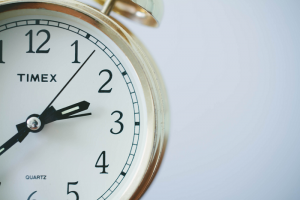
It’s that time of year when clocks and watches will be set forward by an hour early Sunday for daylight saving time, a practice aimed at making the most of longer periods of light during spring and summer days.
Pennsylvania State Fire Commissioner Bruce Trego advised residents recently that they should change the batteries in their smoke alarms and carbon monoxide detectors while changing their clocks for this weekend’s “spring forward” time change.
“Our message to people is simple; a functional smoke alarm is the best way to ensure your family’s safety in the event of a home fire,” said Trego. “All too often, these critical life-saving devices are overlooked or ignored until it’s too late. Test your smoke alarms monthly and replace the batteries regularly. Our state routinely ranks among the country’s highest, when it comes to house fire deaths.”
Trego said used up or missing batteries are the most common causes of smoke alarms or carbon monoxide detectors not working. He added that alarms should be tested monthly.
Daylight saving time, which began in Germany during World War I, was originally meant to conserve coal by reducing people’s use of artificial lighting in the evenings. By the time the war ended in 1918, several other European countries had followed suit.
Critics of the practice say it does not really save energy because it leads people to use more artificial light in the dark mornings and more air conditioning during the warm evening hours.
The United States began letting individual states use daylight saving time in 1918. Only Arizona and Hawaii have opted out of the time change. The practice also has spread to the Middle East and central Asia.
Start and end dates differ, but most countries in the Northern Hemisphere begin daylight saving time in March or April and switch back in October or November. The European Union turns its clocks forward March 29.








